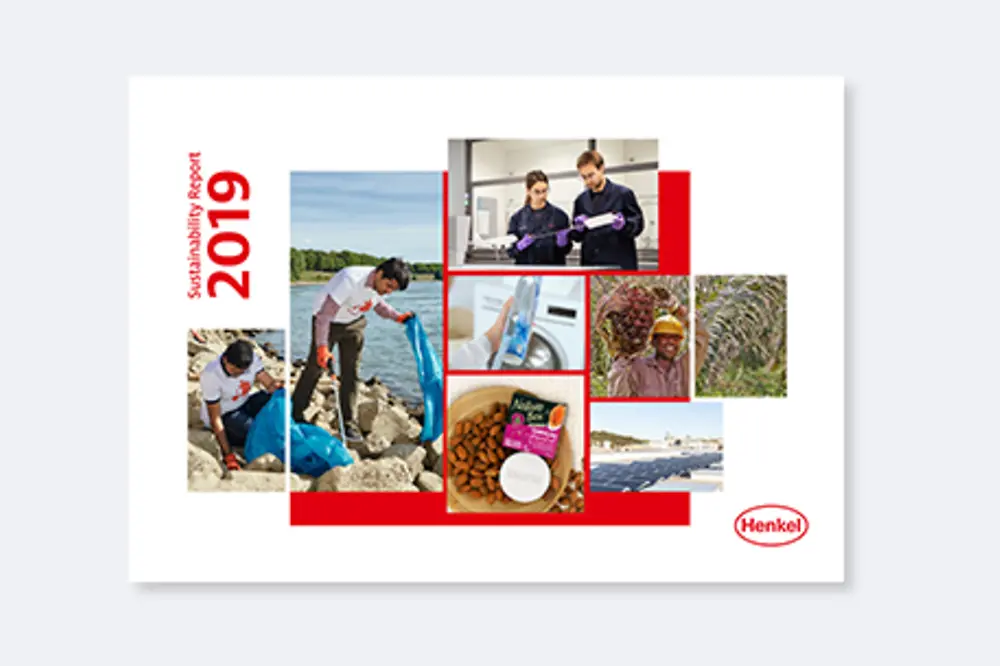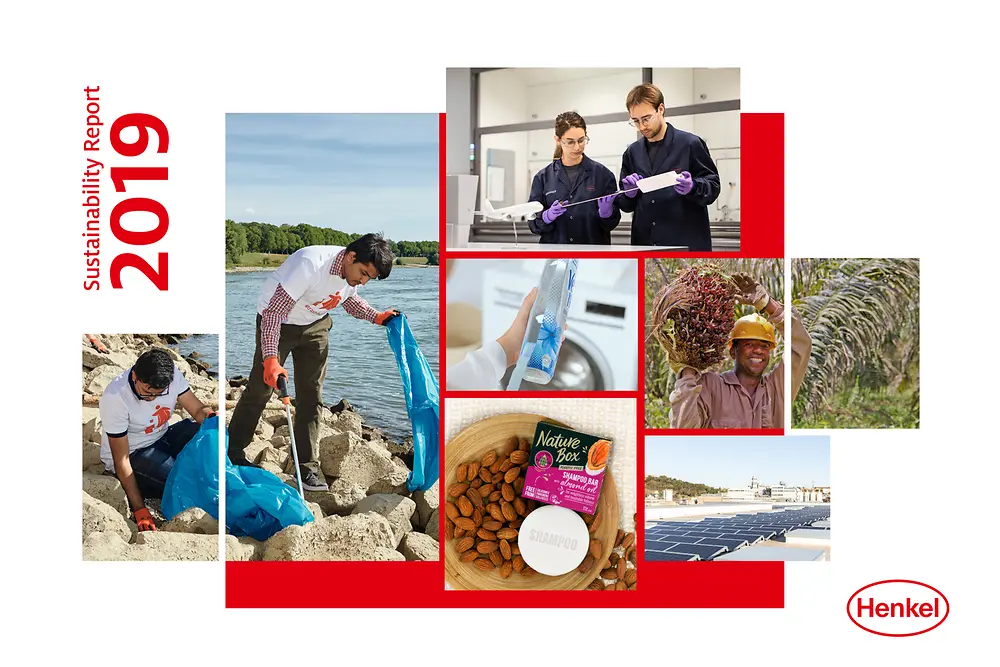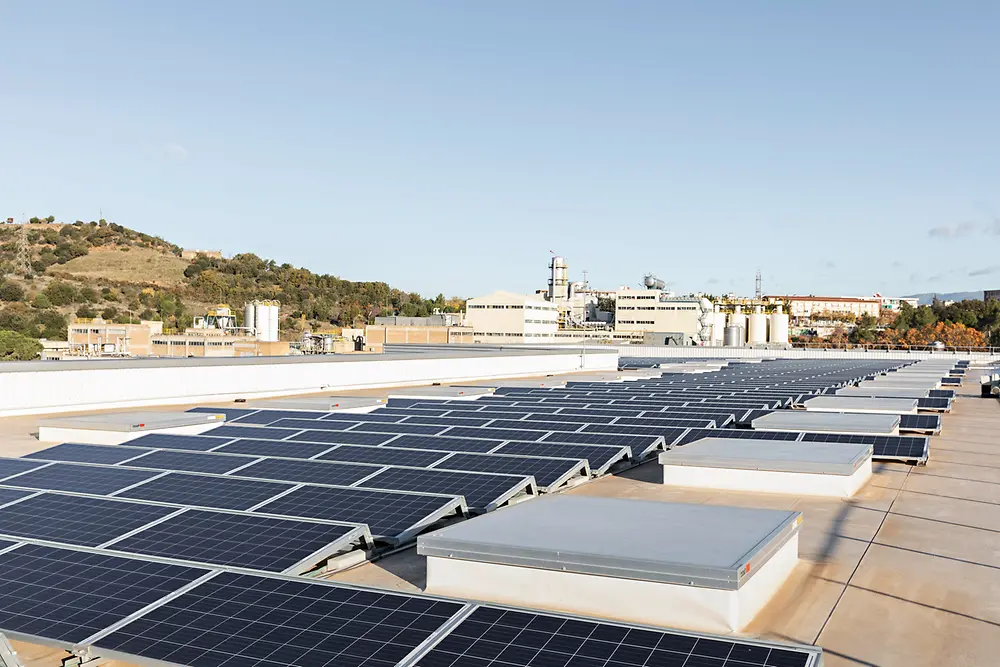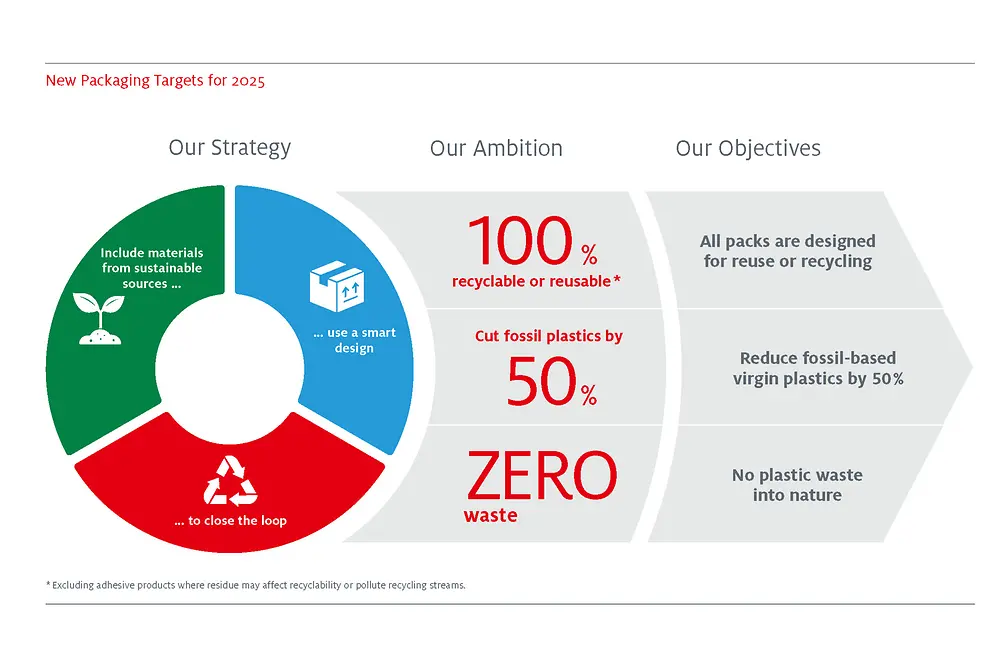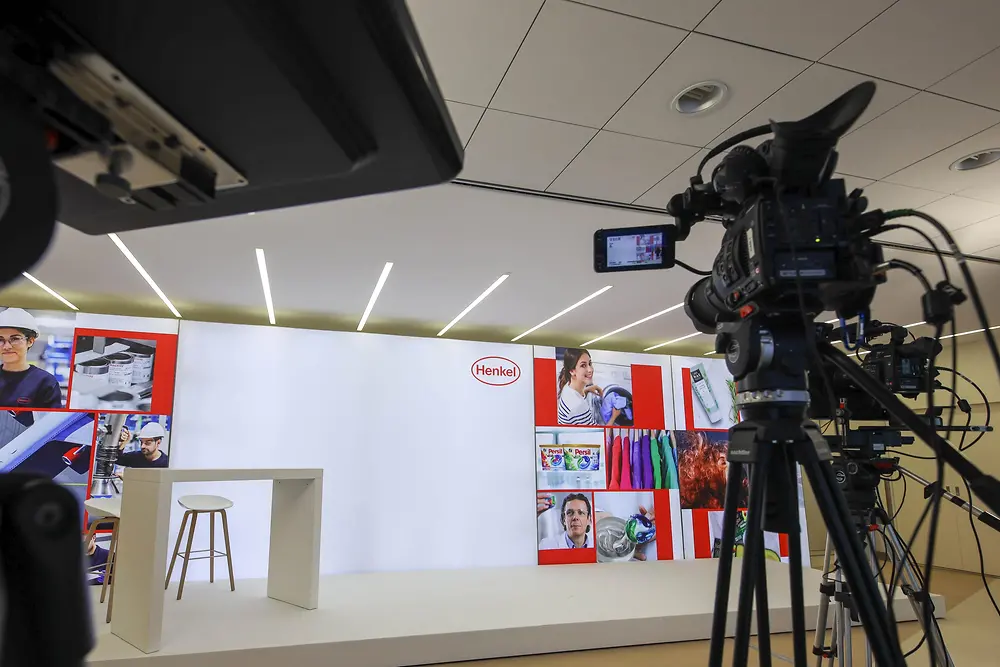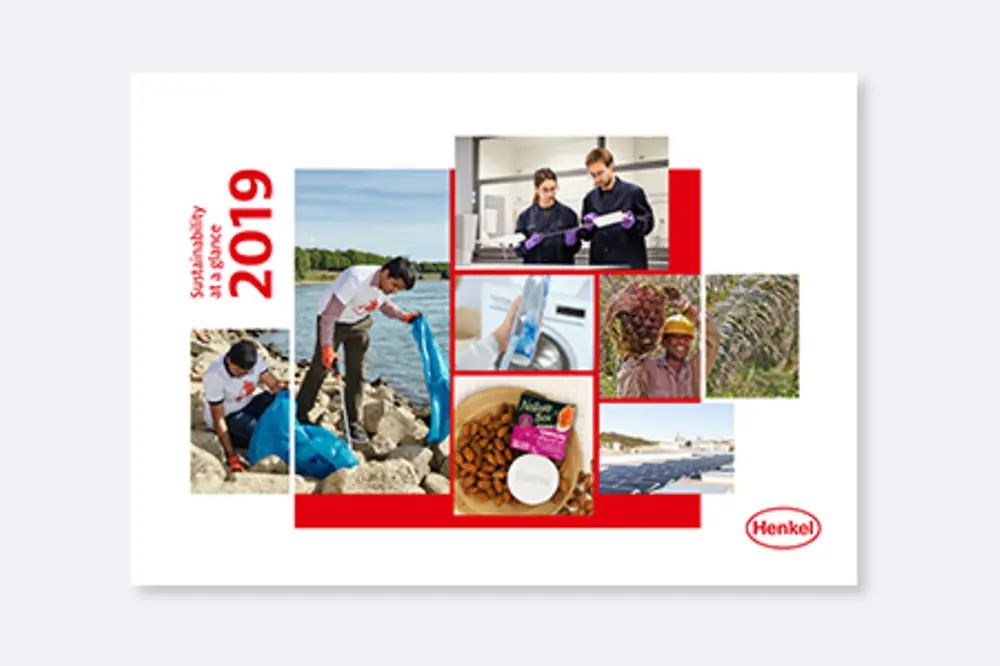Objevte značky našich obchodních divizí: Henkel Adhesive Technologies a Henkel Consumer Brands.
5. 3. 2020 Düsseldorf / Germany
Henkel sets new and ambitious targets for sustainable packaging and climate protection
- Strong progress towards 2020 sustainability targets
- New packaging targets for 2025 to avoid and reduce plastic waste
- Become a climate-positive company by 2040
Henkel today published its 29th Sustainability Report, detailing its performance and progress in all dimensions of sustainability. At the same time, Henkel presented its strategic framework for the future and outlined new targets in key areas such as sustainable packaging and climate protection.
“Our commitment to sustainability has been an integral part of our corporate culture for decades. While we are working with determination to deliver on the targets we defined for 2020, we are stepping up our goals for the future with new milestones to actively contribute to climate protection, a circular economy and social progress. Sustainability is firmly embedded in our new strategic framework, as one of the drivers of competitive edge,” said Carsten Knobel, Chief Executive Officer of Henkel.
“The next five years will be decisive, both on a global level and for us as a company. We need to make sure that we are on the right track to limit global warming and deliver on the United Nations Sustainable Development Goals,” added Sylvie Nicol, Member of the Henkel Management Board responsible for Human Resources and Sustainability.
Strong progress towards 2020 sustainability targets
By 2030, Henkel aims to become three times more efficient in its business activities compared to its environmental footprint in the base year 2010. This is the cornerstone of Henkel’s sustainability strategy. By the end of 2019, Henkel has already increased its total efficiency by 56 percent (compared to 2010).
Henkel already achieved three 2020 targets ahead of time: CO2 emissions were reduced by 31 percent and waste per ton of product was lowered by 40 percent. With an improvement in occupational health and safety by 42 percent, Henkel overachieved its target for 2020. And water consumption per ton of product was reduced by 28 percent compared to 2010. This means, the target of 30 percent is clearly within reach.
Clear targets for climate protection
In view of the need to reduce CO2 emissions to limit global warming, Henkel enhanced its long-term vision to become a climate-positive company and to drive progress in relevant areas of its value chain.
“With our vision to become a climate-positive company by 2040, we explicitly go one step further than becoming carbon-neutral and demonstrate Henkel’s commitment to be a leader in sustainability. We want to drive progress in our own operations and work with our partners along the value chain to jointly contribute to protecting our planet,” explained Sylvie Nicol.
On the way to becoming climate-positive by 2040, the company plans to reduce the carbon footprint of its production by 65 percent by 2025. Henkel intends to achieve this by continuously improving its energy efficiency and by using electricity from renewable sources. By 2040, Henkel aims to have converted all remaining fossil fuels used in production to climate-neutral alternatives and supply surplus carbon-neutral energy to third parties.
In addition, Henkel wants to leverage its brands and technologies to help customers, consumers and suppliers save 100 million tons of CO2 in a ten-year period up to 2025.
New packaging targets for 2025
Building on its progress and activities in sustainable packaging to promote a circular economy, Henkel strengthens its efforts with new, even more ambitious sustainable packaging targets for 2025:
- 100% recyclable or reusable*: All of Henkel’s packaging will be recyclable or reusable*.
- Cut fossil plastics by 50%: Henkel aims to reduce the amount of virgin plastics from fossil sources in its consumer products by 50 percent. This will be achieved by increasing the proportion of recycled plastic for its consumer goods products globally to more than 30 percent, by reducing the plastic volume, and by increasingly using bio-based plastics.
- Zero waste: Henkel wants to help prevent waste from being disposed in the environment. Therefore, the company is supporting waste collection and recycling initiatives and invests in innovative solutions and technologies to promote closed-loop recycling. Henkel aims to reach more than 2 billion consumer contacts per year by providing targeted information about recycling.
At the end of 2019, 85 percent of Henkel’s packaging was recyclable or reusable*. The share of recycled plastic in Henkel’s consumer goods packaging in Europe amounted to 12 percent.
Positive social impact on communities
Contributing to social progress is one of the six focus areas of Henkel’s sustainability strategy. Henkel wants to further enhance its positive social impact on communities by 2025 through 100 percent responsible sourcing, by leveraging its more than 50,000 employees, which have been trained as sustainability ambassadors and by helping to improve 20 million lives globally.
Responsible sourcing
Henkel maintains intensive dialog with its suppliers to promote sustainable practices and respect for human rights along the value chain. Key element of Henkel’s responsible sourcing strategy is a six-stage responsible sourcing process, which is used for assessing the sustainability performance of its suppliers and which is firmly embedded in the company’s purchasing activities. In 2019, the company covered about 86 percent of its purchasing volume in the areas of packaging, raw materials, and contract manufacturing.
A strong example of Henkel’s commitment to responsible sourcing is Together for Sustainability – The Chemical Initiative for Sustainable Supply Chains (TfS), which was co-founded by Henkel in 2011. In the initiative, 23 partners from the entire chemical industry join forces to harmonize increasingly complex supply chain management processes with regard to sustainability. Core elements of the TfS initiative are audits and online assessments, carried out by selected, independent audit companies and EcoVadis, a service provider specialized in sustainability analysis.
Sustainability as differentiator
“At Henkel, we want to firmly anchor sustainability in all our activities and ensure it is a central pillar in the innovation strategies across all business units. This will help to make Henkel more resource-efficient and reinforce our competitive edge,” said Carsten Knobel.
The consumer businesses Beauty Care and Laundry & Home Care, for example, will advance their product portfolios with a particular focus on sustainable packaging solutions and the roll-out of brands with a purpose. Adhesive Technologies will further leverage its potential through products and technologies that enable breakthrough industry solutions.
For more information on Henkel’s sustainability strategy, performance and progress, visit www.henkel.com/sustainability.
* Excluding adhesive products where residue may affect recyclability or pollute recycling streams.


